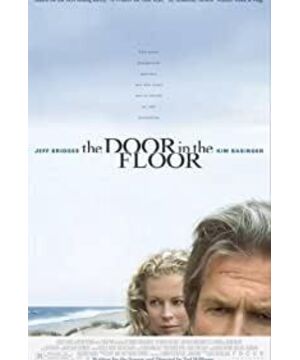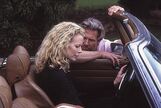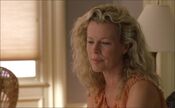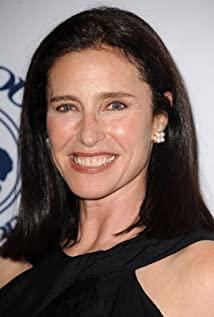Marianne is the wife of children's picture book writer Ted. The two began to separate in the summer, taking turns to accompany their 4-year-old daughter Ruth at home. Ted found himself Eddie, a 17-year-old student assistant. Ted has all the bad habits of a painter and has a lover. Eddie was deeply attracted by Marianne. In the end, Eddie fell in love with Marian, and Marian decided to leave her daughter, husband, and lover who was the same age as her dead son because of the emotional release of this summer.
Eddie is a shy and serious student, with immature eyes avoiding his melancholy wife and "celestial" artists. After this summer, he has experienced love and sex, quickly gained and quickly lost. Soon, he grew up, he was no longer obsessed with promises, and no longer indulged in private sexual satisfaction.
From the eyes of outsiders, this is indeed an "immoral" story, but the lady in the photo studio in the film was moved by this "immoral" after a few words. Ted said it well: Everyone believes that they are more moral than others.
The family is always maintained in balance. When the couple can agree on the concept of romance and loyalty, then the husband and the model are only part of the job, and he knows that only she can understand him. The two had been married for seventeen years and stayed on their sons until their sons died. When the child died before their eyes, the connection between them was destroyed and restored at the moment of death. Based on the balance between "lost" and "grief", she does not leave him, because only he knows what she has gone through, and only he understands her. Even if the two of them moved to the beach in order to get rid of the shadows of the past, and re-birth, in fact, everything that was once cannot be repeated. The daughter is a mistake, although they all love her. The little daughter also carried the burden of the death of her brother, although for her it was just looking at pictures and telling stories. This family seems to have all past and future based on photos, fragile and precarious. The photo of Eddie running in a jersey is the real reason he hired him, because he looks like that dead son. Marianne recovered as a result, but the balance between the couple was broken.
At this time, Eddie's appearance awakened not Marian's love, but memories. Marianne sees him as a resurrected son, and even has a potential psychology for his son to experience real sex and grow up. The mother's atonement, even if it is sex, is just a deformation of maternal love. Through Eddie, she made up for the void in her heart that was formed by the loss of her son.
No one made a mistake this summer. Just like the story written by Ted: "The Door on the Floor", that little fable with a mistake on top of it foreshadows the complicated maternal love and the boy's restless heart. The ending of the story is always that the balance of peace is broken. It is inevitable. No one resents anyone for this. Lost because of love, the key word is not love, but loss. If you make a mistake, you will also lose it. What we face is actually "lost." Love and error, like Ted's paint and the details in the novel, are a kind of life material that makes people want to live a life.
View more about The Door in the Floor reviews











